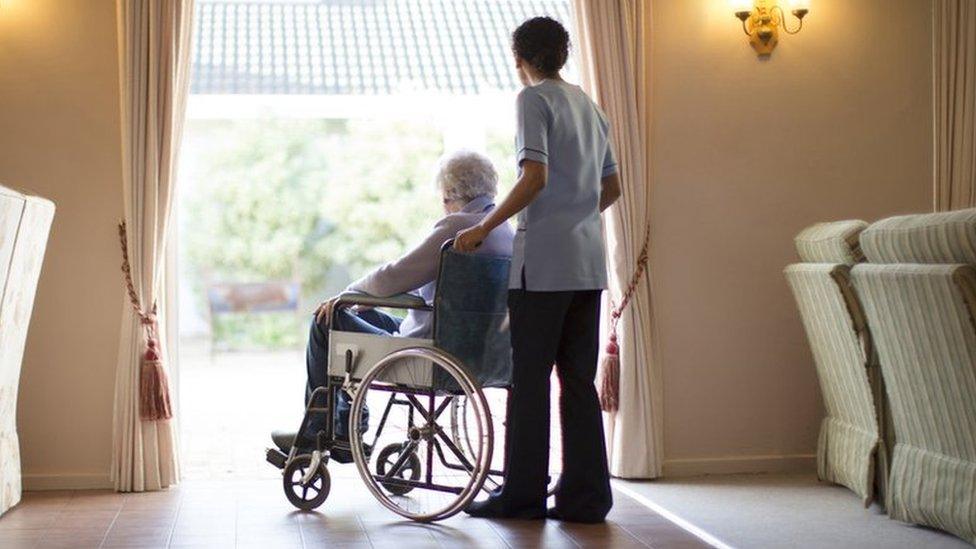Staff shortage putting more people in care homes warning
- Published
- comments

Some people in care homes could have stayed in their own homes, Senedd members heard
People are in care homes because there were too few staff to support them in their own homes, Senedd members have been told.
Social services directors warned that they were unable to recruit and retain home care workers.
Dave Street, from the Association of Directors of Social Services Cymru, called the situation "very sad".
Mr Street, Caerphilly council's social services director, gave evidence to the Senedd's Public Accounts Committee.
The care watchdog warned last year that more people could go into residential care sooner than necessary because of problems recruiting domiciliary care workers.
On Thursday, Mr Street told the committee that home care was "the biggest issue that we have - it's our inability to recruit and retain domiciliary care workers".
The shortage was affecting "our ability to discharge people to their own home" when leaving hospital and "by definition that means that some people then get discharged to care homes", he said.
"That's unfortunate, it's not the way the service should work, it's not the way the system is designed, but as a director I am far more worried about the state of the domiciliary care sector than I am around the residential care sector at the moment."

Dave Street said the situation was "very sad and very unfortunate"
Mr Street agreed "completely" with a suggestion by Swansea East Labour Senedd member Mike Hedges that "people end up in a care home because they reach the stage where they're unable to look after themselves at home, if, however, it had been dealt with earlier, and they had support earlier, they wouldn't have ended up in a care home".
Mr Street added: "Certainly, post-pandemic, the recruitment and retention of domiciliary care staff is a real problem across Wales.
"You're absolutely right, there are some people going into care homes who wouldn't have ordinarily done it if those domiciliary care services were there.
"It's very sad, it's very unfortunate, but there are lots of people at the moment working very, very hard trying to overcome those recruitment difficulties."
'Frankly, £9.90 isn't going to cut it'
Pay levels were key, he said.
Describing the issue as "really tricky", Mr Street said he was "not in any way critical" of the move to pay all social care workers the "real living wage" but "quite frankly, £9.90 isn't going to cut it".
"The view of directors of social services in Wales is an hourly rate somewhere akin to £12 an hour will mean that we could start being competitive with the tourism and hospitality sector."
Mr Street said work could also be done so that new care staff had more opportunities to develop their careers.